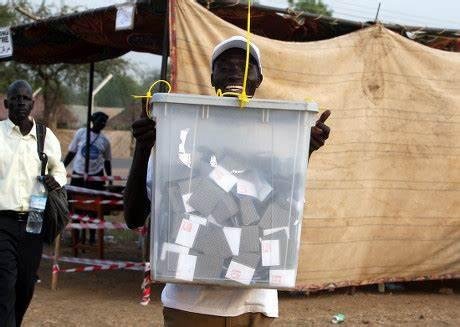The European Union (EU) co-funded AHEAD Africa consortium has urged the parties to the peace agreement in South Sudan to double efforts and commitment toward meaningful election.
South Sudan is expected to hold general election in 2026, however some of the tasks in the 2018 peace agreement continue to pend coupled with insecurity.
According to the statement extended to the media, the consortium urged the South Sudan leaders and peace parties to implement the pathway to peaceful elections.
The group reiterated the need for the leaders to double effortsthis year 2025 and reforms the laws, fund the institutions, engage the people, and commit to meaningful elections.
AHEAD Africa is a pan-African project co-funded by the European Union, focusing on the multiple facets of the electoral cycle on the continent (Africa).
The consortium emphasized that the delay in election continue to create mistrust in the implementation of the peace agreement putting it at risk.
“The continued delay of elections risks fuelling conflict and deepening exclusion. It further erodes trust in peace efforts, leaving them fragile and likely to collapse—this is the crossroads South Sudan faces today,” the statement partly read.
The consortium said the cost of further delay is not just political stagnation, but the erosion of hope, violation of human and people rights.
It asserted that the South Sudanese people were ready for elections to bring their representatives to parliament who can champion their issues.
“From village assemblies to urban debates on social media platforms, there is a persistent demand for change—a government that serves, not dominates; leadership that is accountable, not entrenched,” it stated.
The consortium five recommendations, including the convening of a national conference to bring together political leaders, civil society, and international observers to agree on a minimal reform agenda.
Its other recommendation is minimum constitution reform to enable elections without rushing the full process.
In May this year the Executive Director of the Community Empowerment for Progress Organisation, Edmund Yakanistated that funding constraints have delayed the full implementation of essential tasks related to the upcoming elections.
Yakani made the remark during a roundtable discussion on election.
“Recent political developments in the country, including the undermining of the unification of forces, the lack of financing for the constitution-making process, and the unclear status of the population census, are all contributing to the delays in conducting elections,” Yakani said
Yakani noted that President Salva Kiir Mayardit has reached a decision with the National Election Commission to conduct free, fair, and credible elections as scheduled for December 2026.
“We are actually behind schedule, and preparation is not yet in place; it is below 50 percent. If the political leadership does not make timely disbursements of cash for the preparation of elections, we will face significant challenges,” he said.
“The National Election Commission has demonstrated that they have materials for civic education and voter education, and they are also ready to carry out voter registration, but the constraint is that they do not have resources in place to deliver their tasks.” He added.
Amos Juma, the Commissioner at the National Election Commission, stated that the electoral commission needs funds to be able to conduct free, credible, and democratic elections in December 2026.
“We need to continue engagement with civil society, political parties, and those who have a stake in the election. The National Election Commission should expedite the dissemination of the civic and voter education strategy document to concerned stakeholders so that they can begin raising awareness about the election,” Juma added.
